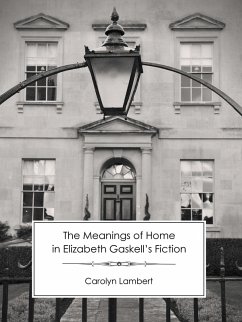In this beautifully written study, Carolyn Lambert explores the ways in which Elizabeth Gaskell challenges the nineteenth-century cultural construct of the home as a domestic sanctuary offering protection from the stresses and strains of the external world. Gaskell's fictional homes often fail to provide a place of safety: doors and windows are ambiguous openings through which death can enter, and are potent signifiers of entrapment as well as protective barriers. The underlying fragility of Gaskell's concept of home is illustrated by her narratives of homelessness, a state she uses to represent psychological, social, and emotional separation.
By drawing on Gaskell's novels, letters, and non-fiction writings, Lambert shows how her detailed descriptions of domestic interiors allow for nuanced and unconventional interpretations of character and behaviour. Lambert argues that Gaskell's own experience was that of an outsider whose own difficulties are reflected in her multi-faceted and complex portrayals of home in her fiction.
By drawing on Gaskell's novels, letters, and non-fiction writings, Lambert shows how her detailed descriptions of domestic interiors allow for nuanced and unconventional interpretations of character and behaviour. Lambert argues that Gaskell's own experience was that of an outsider whose own difficulties are reflected in her multi-faceted and complex portrayals of home in her fiction.
Dieser Download kann aus rechtlichen Gründen nur mit Rechnungsadresse in A, B, CY, CZ, D, DK, EW, E, FIN, F, GR, H, IRL, I, LT, L, LR, M, NL, PL, P, R, S, SLO, SK ausgeliefert werden.









